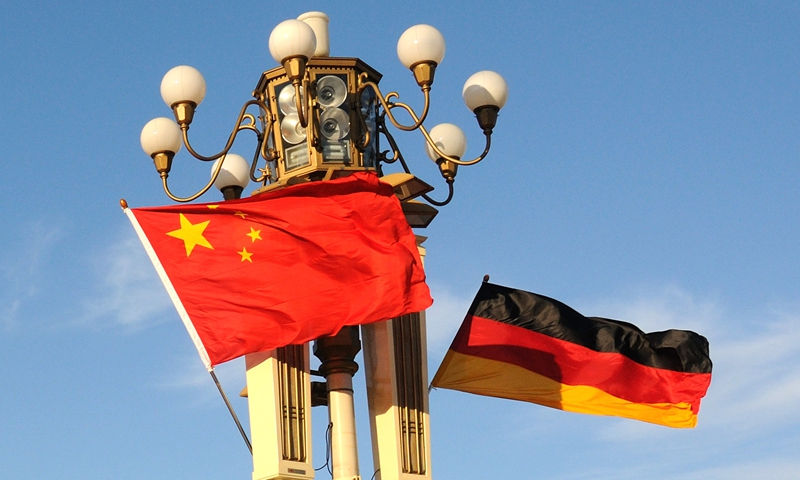
China Germany: Xinhua
The German Chamber of Commerce in China said on Thursday that China's recent optimization of anti-COVID-19 measures is a "much-welcomed development" for German firms and the vast majority of German businesses remain committed to the Chinese market, which remains "unrivaled" for them despite calls for "decoupling."
Clas Neumann, chairman of the German chamber, described the recent optimization as a "game changer" on Thursday, noting that "German companies will quickly adjust their business operations to the new conditions to help overcome the expected COVID-19 infection wave, and they will be more optimistic thereafter for the year ahead."
China has been continuing its optimization of COVID-19 epidemic prevention and control measures as it shifts the focus of its response strategy from curbing new infections to preventing and treating severe cases.
The German chamber also described the policy shift in the survey as a "much-welcomed development" that will help restore business confidence in the medium and long term, though previous epidemic flare-ups have posed challenges to some firms' businesses over the past year.
"Optimism returns in 2023, where 50 percent expect an increased business turnover and 37 percent forecast higher profits. Also, 77 percent of German companies expect increasing annual growth in their industries for the next five years," the survey said.
The German chamber represents more than 2,100 member companies, roughly half of all German companies operating in China. The survey was conducted in August and September of this year, with a total of 593 member companies responding to the survey.
"It is one of the most representative samples of German business sentiment in China," the chamber said.
"Despite all the odds and challenges, China remains unrivaled in terms of market size and market growth opportunities for many German companies. The large majority will stay committed to the Chinese market," Neumann said during the online launch of the survey.
The survey showed that the majority of companies remain active in China, and 89 percent of German companies have no plans to leave China within the next two years, while only 1 percent of the respondents will completely leave the country.
Such positivity from the German business community about the Chinese market also comes as some politicians in the European country have been sparing no effort to create discord in China-Germany relations.
For instance, Germany's Minister for Economic Affairs and Climate Action Robert Habeck, who belong to the Greens, has called for reducing dependence on the Chinese market and industry chain.
Observers said that it is important to discern the rhetoric of anti-China forces with the attitude of Olaf Scholz's government. The former is driven by a zero-sum mindset and is doomed to fail, while the latter displays pragmatism and receives acclaim among the German business community.
Most of the policies that preach "decoupling from China" are made by the Greens, which cater to the appetite of the Biden administration and carry a deep ideological undertone, Zhao Junjie, a research fellow at the Chinese Academy of Social Sciences' Institute of European Studies, told the Global Times.
China remained Germany's most important trading partner in October this year, with imports from China growing 27.4 percent year-on-year to 17.3 billion euros ($18.3 billion), according to a report from the Xinhua News Agency, citing data from Federal Statistical Office (Destatis).
Germany's imports of data processing equipment, electronic and optical products from China surged 23.1 percent year-on-year to 5.8 billion euros. Other types of electronic equipment, machinery and clothing were also among the top imported products.
Global Times



